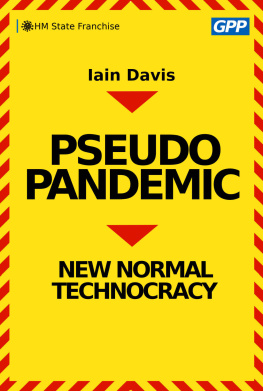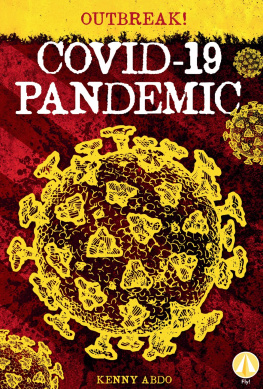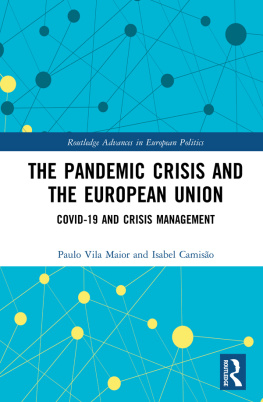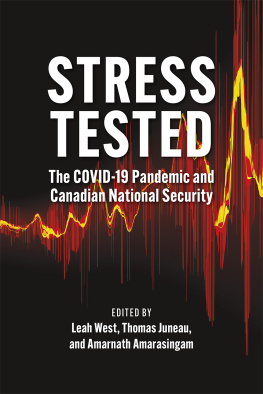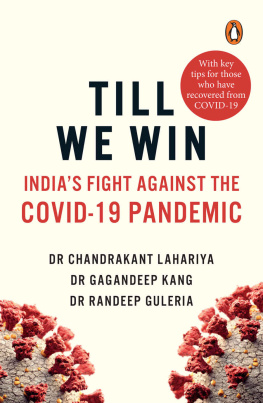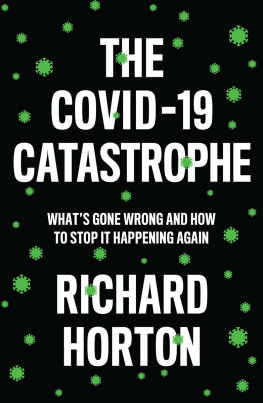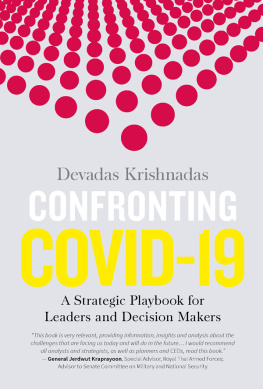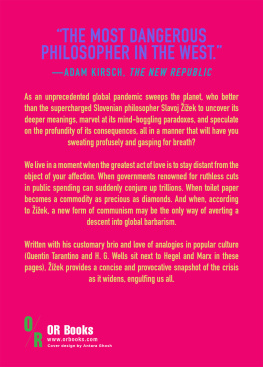All rights reserved. This book or any portion thereof may not be reproduced or used in any manner whatsoever without the express written permission of the publisher except for the use of brief quotations in a book review.
CONTENTS
p4 - Introduction
p9 - Chapter 1 - Pseudopandemic
p22 - Chapter 2 - Global Public Private Partnerships
p37 - Chapter 3 - Who Cares About The Risk
p45 - Chapter 4 - Keeping Us Safe
p58 - Chapter 5 - A Testing Time
p74 - Chapter 6 - Pseudopandemic Lockdowns
p93 - Chapter 7 - Covid Catch 22
p104 - Chapter 8 - Unthinkable Happens
p121 - Chapter 9 - The Pseudopandemic Opportunity Realised
p136 - Chapter 10 - The Official Story
p151 - Chapter 11 - Hybrid War
p167 - Chapter 12 - Lockdown Mortality
p184 - Chapter 13 - Core Beliefs
p197 - Chapter 14 - Population Control Eugenics *
p211 - Chapter 15 - Sustainable Eugenics
p225 - Chapter 16 - Technocracy Rising
p236 - Chapter 17 - Constructing The Technate
p250 - Chapter 18 - Pseudopandemic Motive
p266 - Chapter 19 - Faith In The Eco-Dictatorship
p285 - Chapter 20 - Behaviour Change
p300 - Chapter 21 - Pseudopandemic Vaccines
p315 - Chapter 22 - Making An Extremist
p327 - Chapter 23 - The Biosecurity State
p340 - Chapter 24 - Proper Planning Prevents Poor Performance
p358 - Chapter 25 - Money For Nothing
p367 - Chapter 26 - Private Wealth Transfer
p378 - Chapter 27 - Pseudopandemic Trigger Event
p388 - Chapter 28 - We Can Reset The World
Introduction
We are living through a global transformation. Our society, culture, economy and even our humanity is undergoing a process of change at the behest of our leaders. This book attempts to explain who those leaders are, what the transition is propelling us towards and why our leaders are taking us there.
The policy response to the COVID 19 crisis has been opposed by a large minority but supported by the overwhelming majority. Among those who question what we are told about COVID 19 are a contingent who wish to exercise their inalienable rights and freedoms. Often described as anti-lockdown, anti-science , anti-vaxxers or conspiracy theorists, on the whole, they are not opposed to anything other than dictatorship and slavery. Rather they are pro-freedom , pro-science (pro-medical science) and pro-truth .
The people who have been marginalised, censored, berated by many, and physically attacked by the authorities, are the people who most vociferously advocate the freedoms our democratic societies are supposedly based upon. The freedoms which generations before us struggled, fought and died to protect. While government frequently exult us to honour this sacrifice it seems it is currently inconvenient for them to do so.
Those who appear to unquestioningly support the policy response to the COVID 19 pandemic claim that these freedoms and rights don't matter when we are faced with a global emergency. It is difficult to understand this argument.
In what way are freedom of speech, expression and thought dangerous? Dangerous to whom? How do they inhibit our ability to respond to a genuine emergency?
Governments around the world are determined that we will embrace the idea of human rights . They claim that everything they do is based upon these rights and their determination to keep us safe .
Human rights are permissions written down on pieces of paper by other human beings. A system of global human rights is a a system of government issued permits which defines what we are or are not allowed to do.
As human rights are just words written on pieces of paper they can be changed, reinterpreted and ignored. They are neither immutable nor inalienable. This is why governments are so eager for us to place our faith in human rights . It enables them to tell us what is permitted.
Governments are pathologically allergic to the concept of inalienable rights . They are mentioned just once in the preamble to the United Nations Universal Declaration of Human rights and are omitted entirely from the Declaration itself.
Article 2 states:
"Everyone is entitled to all the rights and freedoms set forth in this Declaration."
In other words, no one is entitled to any rights that are not stipulated in the Declaration. Unlike inalienable rights, which every human being is born with and no human being can legitimately deny, human rights are a political construct.
The Declaration then goes on to describe our rights to life, liberty, health, education and various freedoms. Who could disagree with these noble principles?
The Universal Declaration of Human Rights employs a form of propaganda called Card Stacking . By presenting a lengthy list of righteous humanitarian goals, to which no reasonable person could object, it hides the insidious and unacceptable reality. Unless we are observant we are easily fooled by Card Stacking . The devil is always in the detail.
Article 29 states:
"In the exercise of his rights and freedoms, everyone shall be subject only to such limitations as are determined by law solely for the purpose of securing due recognition and respect for the rights and freedoms of others and of meeting the just requirements of morality, public order and the general welfare in a democratic society. These rights and freedoms may in no case be exercised contrary to the purposes and principles of the United Nations ."
Human rights are not rights at all. They can be denied by any law (legislation) enacted by any government (politician). As we have just experienced with the Coronavirus Act in the UK, human rights are expendable to protect "public order and the general welfare." Under the U.N Declaration they can be and are ignored whenever the government sees fit. They are nothing but empty words written on pieces of paper.
A society based upon human rights has no rights. Those who think human rights are expendable in emergencies are correct. They are expendable whenever.
What they fail to grasp is that inalienable rights can never be extinguished. Throughout this book the consistent unspoken theme is the disregard for our human rights. Not just among those who intentionally ignore them but also among a population who appear to have forgotten what they are and why, without them, we have nothing.
Inalienable right are not permits bestowed upon us by government. They are universal concepts of natural justice inherent to Natural or God's law. They exist in nature not on pieces of paper. They are immutable and inalienable and can be perceived by every emotional being, including humans.
No one needs a written law to tell them that it is wrong to harm a defenceless child or commit other acts of violence. We don't need to be told that it is wrong to take something that is not ours without the permission of the owner. We feel that it is wrong, we experience our wrongdoing as guilt. Inalienable rights are emotionally resonant and as soon as we are able to experience emotion we can sense them.
We are born capable of emotion. We are born with the ability to understand the difference between right and wrong. We are born with inalienable rights. The few of us who are incapable of making the distinction are suffering from personality disorders.
Sociopaths and psychopaths are unable to distinguish between right and wrong because they lack natural human emotional responses. Their egos convince them that they are special and therefore they do not feel the need to observe others rights. For them, only that which serves their purpose has value. Inalienable rights are incomprehensible for the psychopath and the sociopath.

